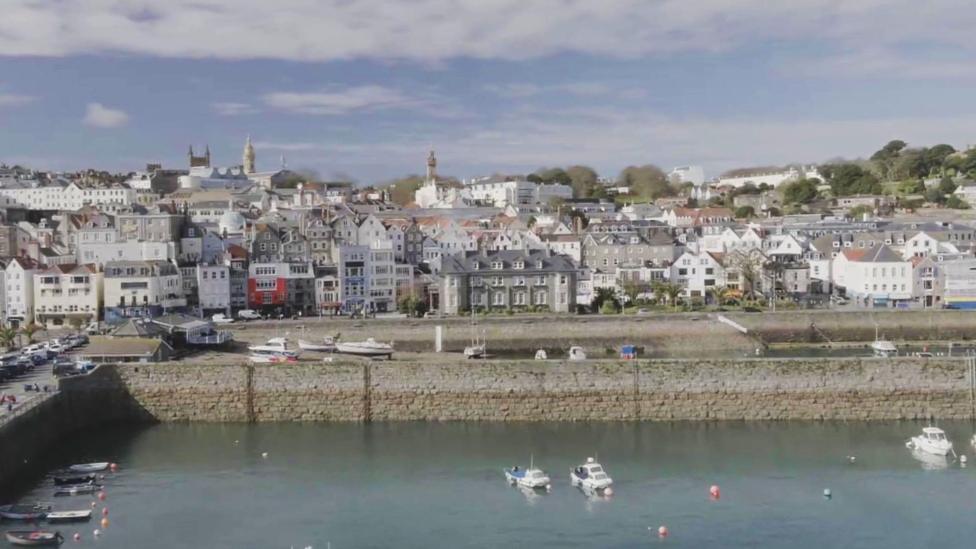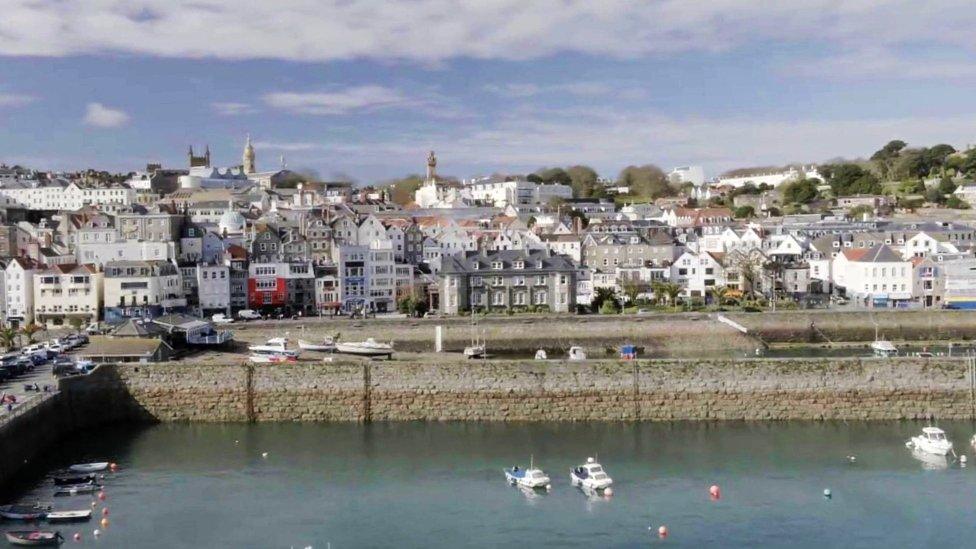Inflation 'may cause more price rises in Guernsey'

Costs of housing, heating, transport off-island, motoring and the war in Ukraine have caused price increases in Guernsey
At a glance
Guernsey sees its RPIX rate excluding mortgage interest rates increase to 5.9%
The States says the rate is still lower than the UK equivalent
But it "may take some time" for the figures to start falling, the States also says
- Published
Guernsey could be "stuck with" higher prices for some time as annual inflation has risen to its highest rate since 2008, the island's senior politician has said.
Prices increased by just under 6% in the past year until March, according to inflation figures excluding mortgage interest rates - an increase from 4.6% in the year until December.
The States said inflation had been driven upwards primarily by costs of housing, domestic heating fuels, holidays outside the Channel Islands and motoring increasing significantly.
Policy and Resources Committee President Peter Ferbrache said he thought such rates would be seen "for at least the rest of this year".
'Ukraine aftermath'
The figure excluding mortgage interest rates (RPIX) is 5.9%.
Prices had also been driven up by global supply chain problems and disruption to energy markets as a result of the war in Ukraine, the States said.
The UK had seen equivalent rises of 9.1%, it said.
The impact was less in the bailiwick than the UK "because of Guernsey’s connection to the French electricity grid... and our warmer climate and smaller geographic size", it added.
But it also said that although UK inflation was "expected to start falling later in the year... it may take some time to bring figures back down to their target levels".
Deputy Ferbrache said he'd "like to see them coming down tomorrow, but that's not going to happen".
He said: "I think we're going to be stuck with them for at least the rest of this year.
"The Ukraine conflict is not going to go away, and, if it's settled, there'll be the aftermath of that; and there are supply chain problems which is why, for example, building costs are high."
Related topics
- Published21 January 2022

- Published5 October 2021
